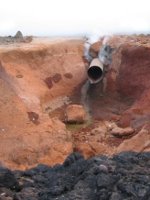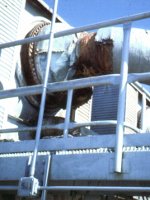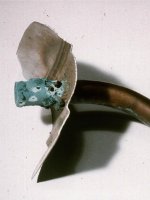ISO 15156/ NACE MR0175
This course is a half day long and presents the essential elements of all three parts of the Standard governing the use of metallic materials for sour service. This is the principal standard of the oil and gas industry, designed to prevent accidents like that shown.
The course is aimed at junior corrosion and materials engineers, as well as mechanical, process and chemical engineers, who need to be aware of the standard. The course is also suitable for technical sales personnel involved with products covered by the standard.
The first presentation describes all three parts of the standard and their essential elements. The second lecture covers responsibilities, as set out in the standard, levels of information and how to take commercial advantage of the standard.
The course can be put on for a single company's staff, or as part of a wider, more public gathering.
Contact us for more details.




